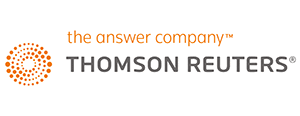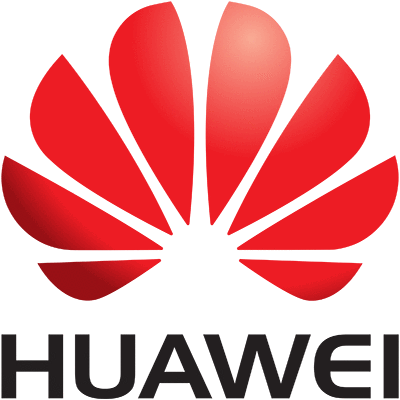Applied Data Science Invited Panel
- Home /
- Applied Data Science Invited Panel /
- Moderator: Usama Fayyad

“Who is a Data Scientist? Defining the Analytics Profession and Cutting Out the Hype and Confusion”
Moderator: Usama FayyadWho gets to call themselves a Data Scientists? An Analytics Professional? This Panel will explore the problems and possibilities in understanding and defining standards on definitions of analytics roles, skill-sets and career paths in the data science industry. As the role of data and analytics is expanding very rapidly in creating new business models or changing existing ones, demand for analytics professionals is growing at an increasing rate. The world has witnessed an explosion in the number of people describing themselves as Data Scientists or Analytics Professionals. Yet in the majority of cases, such people do not fit the bill for an available role. This leaves employers, trainers, educational institutions, recruiters, and customers in a total state of confusion.
Almost every company in the industry has a unique way of defining roles and assigning titles in data analytics related positions. For any given role or title, such as ‘Data Scientist’ or ‘Data Mining Manager’, a variety of role definitions, expected hard and soft skills, expected level of experience, level in the organization, or career development plan including training can be seen. This creates inefficiencies and makes it difficult for companies to find the right match for a given position, leverage analytics skills effectively and retain talent. It also makes it hard for professionals to understand what a certain position requires and develop their own development plans. This has resulted in a chaotic market that is confusing to employers, academic and training institutions, recruiters, managers, customers, and candidates; with a large number of unqualified candidates calling themselves “data scientist” or “analytics professional”.
This panel discussion aims to shed some insight about the analytics profession in practice and the kind of problems faced by organizations in attracting and retaining the right analytics talent. We will discuss topics like the development of standards regarding analytics role definitions, required skills and career advancement paths. This will help set some industry standards which in turn could support the healthy growth of the analytics market. Questions addressed include:
- The true cost of confusion around qualifications for the field, the profession, and organizations attempting to conduct data science
- How do you wade your way through the plethora of individuals claiming they are “Data Scientists”?
- Approaches to effectively identify and retain the true talent
- The need for training and standardization
- Is it about technology tools or is it about trained qualified people? What are the tradeoffs?
The panelists represent a wide representation of large employers of analytics professions, large enterprises with serious need for data science and analytics, and stakeholders who are trying to address the gaps and define the requirements and qualifications for the relevant roles.
Moderator
Usama is Co-Founder & CTO at OODA Health. He is also Chairman at Open Insights – a technology and strategic consulting firm he founded in 2008 to help enterprises deploy data-driven solutions to grow revenue from Data assets. In addition to BigData strategy and building new business models on data assets, the company deploys data science, AI/ML, and bigData solutions for large enterprises. From 2013-2016 Usama served as Global Chief Data Officer at Barclays in London, after he launched the largest tech startup accelerator in MENA as Executive Chairman of Oasis500 in Jordan in 2010. His background includes Chairman and CEO roles at several startups, including Blue Kangaroo Corp, DMX Group and digiMine Inc. He was the first person to hold the Chief Data Officer title when Yahoo! acquired his second startup in 2004. At Yahoo! he built the Strategic Data Solutions group and founded Yahoo! Research Labs where much of the early work on BigData made it to open source and established the early collaborations that launched Hadoop and other open source contributions. He has held leadership roles at Microsoft (1996-2000) and founded the machine learning systems group at NASA’s Jet Propulsion Laboratory (1989-2005), where his work on machine learning resulted in the top Excellence in Research award from Caltech, and a U.S. Government medal from NASA.
Usama has published over 100 technical articles on data mining, data science, AI/ML, and databases. He holds over 30 patents and is a Fellow of both the AAAI and the ACM. Usama earned his PhD in Engineering in AI and Machine Learning from the University of Michigan. Ann Arbor. He has edited two influential books on data mining and served as editor-in-chief on two key industry journals. He also served on the boards or advisory boards of several private and public companies including: Criteo, Invensense, RapidMiner, Stella.AI, Virsec, Silniva, Abe.AI, NetSeer, Choicestream, Medio, and others. On the academic front his is on advisory boards of the Data Science Institute at Imperial College, AAI at UTS, and The University of Michigan College of Engineering National advisory Board. He is active in the academic community with several adjunct professor posts and is the only person to receive both the ACM’s SIGKDD Innovation Award (2007) and Service Award (2003). He is an active angel investor and advisor in many early-stage tech startups across the U.S., Europe and the Middle East.
Panelists
Hamit Hamutcu
Co-founder – Analytics Center
 Hamit has over 20 years of industry and consulting experience in the areas of analytics, customer relationship management and marketing strategies driven by data. He is a co-Founder of Analytics Center, a company focused on the use of data and analytics in business as well as an advisor or investor in several analytics related initiatives that work in developing vertical machine learning solutions for industries such as advertising and e-commerce. Hamit was a Founding Partner for EMEA offices for Peppers & Rogers Group, the leading customer-led business strategy consulting firm based in the U.S. He then led the development of the firm in the region by serving clients across the Middle East, Africa and Europe. He also worked as a Partner for the firm’s US office heading up its global Analytics group. In this capacity he oversaw the growth of the analytics practice and helped his clients develop analytics functions, build data infrastructure and deploy analytical models to support business goals.
Hamit has over 20 years of industry and consulting experience in the areas of analytics, customer relationship management and marketing strategies driven by data. He is a co-Founder of Analytics Center, a company focused on the use of data and analytics in business as well as an advisor or investor in several analytics related initiatives that work in developing vertical machine learning solutions for industries such as advertising and e-commerce. Hamit was a Founding Partner for EMEA offices for Peppers & Rogers Group, the leading customer-led business strategy consulting firm based in the U.S. He then led the development of the firm in the region by serving clients across the Middle East, Africa and Europe. He also worked as a Partner for the firm’s US office heading up its global Analytics group. In this capacity he oversaw the growth of the analytics practice and helped his clients develop analytics functions, build data infrastructure and deploy analytical models to support business goals.
His industry experience includes several positions within Federal Express in Memphis in marketing analytics, and technology where he led IT and business teams to leverage the enormous amount of data the company generated to serve its customers better.
Hamit is also a frequent speaker, writer and board member at various start-ups and non-profit organizations. He earned his B.Sc. degree in Electronics Engineering at Bogazici University in Istanbul and his MBA degree at University of Florida.
Ravi Kumar
Senior Staff Research Scientist, Google (USA)
 Ravi Kumar has been a senior staff research scientist at Google since 2012. Prior to this, he was a research staff member at the IBM Almaden Research Center and a Principal Research Scientist at Yahoo! Research. His research interests include Web search and data mining, algorithms for massive data, and the theory of computation. Ravi holds a Ph.D. fro Cornell University, and graduate degrees from both Georgia Tech and the Indan Institute of Science (IISc Bangalore)
Ravi Kumar has been a senior staff research scientist at Google since 2012. Prior to this, he was a research staff member at the IBM Almaden Research Center and a Principal Research Scientist at Yahoo! Research. His research interests include Web search and data mining, algorithms for massive data, and the theory of computation. Ravi holds a Ph.D. fro Cornell University, and graduate degrees from both Georgia Tech and the Indan Institute of Science (IISc Bangalore)
Kjersten Moody
Chief Data and Analytics Officer, State Farm Insurance (USA)
 Kjersten Moody joined State Farm in July 2017 as Vice President and Chief Data & Analytics Officer in Bloomington, Illinois. Previously, Kjersten led Data & Analytics and IT groups at global companies, such as FICO (Braun), Thomson Reuters and Unilever. She has a record of delivering tangible, positive business results, and a depth of experience in scaling operations, planning/executing mission-critical business initiatives, and achieving profitability objectives.
Kjersten Moody joined State Farm in July 2017 as Vice President and Chief Data & Analytics Officer in Bloomington, Illinois. Previously, Kjersten led Data & Analytics and IT groups at global companies, such as FICO (Braun), Thomson Reuters and Unilever. She has a record of delivering tangible, positive business results, and a depth of experience in scaling operations, planning/executing mission-critical business initiatives, and achieving profitability objectives.
Kjersten is a graduate of the University of Chicago. She is a member of the board of Harvey Mudd College.
Narendra Mulani
Lead for Applied Intelligence, Accenture (USA)
 Narendra is the Lead for Accenture Applied Intelligence, a practice that combines Artificial Intelligence with deep industry and analytics expertise to help clients address their most complex challenges. A connector at the core, Narendra brings machine learning, data science, data engineers and the business closer together across industries and geographies to apply intelligent technology and human ingenuity at the clients’ core – across every function and process – to foster a data native culture. Narendra leads a global team of industry and function-specific analytics professionals, data scientists, data engineers, analytics strategy, design and visualization experts across 56 markets to help clients unlock trapped value, embrace intelligent technologies confidently and responsibly, and define new ways to disrupt in their markets. As a leader, he believes in creating an environment that is inspiring, exciting and innovative.
Narendra is the Lead for Accenture Applied Intelligence, a practice that combines Artificial Intelligence with deep industry and analytics expertise to help clients address their most complex challenges. A connector at the core, Narendra brings machine learning, data science, data engineers and the business closer together across industries and geographies to apply intelligent technology and human ingenuity at the clients’ core – across every function and process – to foster a data native culture. Narendra leads a global team of industry and function-specific analytics professionals, data scientists, data engineers, analytics strategy, design and visualization experts across 56 markets to help clients unlock trapped value, embrace intelligent technologies confidently and responsibly, and define new ways to disrupt in their markets. As a leader, he believes in creating an environment that is inspiring, exciting and innovative.
Narendra takes a thoughtful approach to developing unique analytics strategies and uncovering impactful outcomes. His insight has been shared with business and trade media including Bloomberg, Harvard Business Review, Information Management, CIO magazine, and CIO Insight. Under Narendra’s leadership, Accenture’s commitment and strong momentum in delivering innovative analytics services to clients was recognized in Everest Group’s Analytics Business Process Services PEAK Matrix™ Assessment in 2017.
Narendra joined Accenture in 1997. Prior to assuming his current role, he was the Managing Director – Products North America, responsible for delivering innovative solutions to clients across industries including consumer goods and services, pharmaceuticals, and automotive. He was also managing director of supply chain for Accenture Management Consulting where he led a global practice responsible for defining and implementing supply chain capabilities at a diverse set of Fortune 500 clients.
Narendra graduated with a Bachelor of Commerce degree at Bombay University, where he was introduced to statistics and discovered he understood probability at a fundamental level that propelled him on his destined career path. He went on to receive an MBA in Finance in 1982 as well as a PhD in 1985 focused on Multivariate Statistics, both from the University of Massachusetts.
Claudia Perlich
Senior Data Scientist of Two Sigma (USA)
 Previously, as Chief Scientist at Dstillery, Claudia was the visionary leader behind the design, development, analysis and optimization of the machine learning that drives digital advertising to prospective customers of brands. As an active industry speaker and frequent contributor to industry publications, Claudia has emerged as one of the most prominent data scientist in the industry. Most recently, Claudia acted as the first female general chair of the premier data science conference KDD 2014. Additionally, she was named one of American Marketing Association’s (AMA) 4 Under 40 Marketing Emerging Leaders Award, Fast Company’s 100 Most Creatives and Crain’s 40 under 40. Claudia has published over 50 scientific articles and holds multiple patents in machine learning.
Previously, as Chief Scientist at Dstillery, Claudia was the visionary leader behind the design, development, analysis and optimization of the machine learning that drives digital advertising to prospective customers of brands. As an active industry speaker and frequent contributor to industry publications, Claudia has emerged as one of the most prominent data scientist in the industry. Most recently, Claudia acted as the first female general chair of the premier data science conference KDD 2014. Additionally, she was named one of American Marketing Association’s (AMA) 4 Under 40 Marketing Emerging Leaders Award, Fast Company’s 100 Most Creatives and Crain’s 40 under 40. Claudia has published over 50 scientific articles and holds multiple patents in machine learning.
She has won many data mining competitions as well as the KDD Best Paper Award for Data Leakage in 2011 and Bid Optimization in 2012.
Prior to joining Dstillery, she worked in Data Analytics Research at IBM’s Watson Research Center, concentrating on data analytics and machine learning for complex real-world domains and applications.
Claudia has a PhD in Information Systems from NYU and an MA in Computer Science from the University of Colorado. Claudia takes active interest in the making of the next generation of data scientists and is teaching “Data Mining for Business Intelligence” in the NYU Stern MBA program.
Jeannette Wing
Avanessians Director of the Data Sciences Institute and Professor of Computer Science at Columbia University
 Jeannette M. Wing is Avanessians Director of the Data Science Institute and Professor of Computer Science at Columbia University. She came to Columbia in July 2017 from Microsoft, where she served as Corporate Vice President of Microsoft Research, overseeing a global network of research labs. She is widely recognized for her intellectual leadership in computer science, particularly in trustworthy computing. Jeannette’s seminal essay, titled “Computational Thinking,” was published more than a decade ago and is credited with helping to establish the centrality of computer science to problem-solving in fields where previously it had not been embraced. Before joining Microsoft, Jeannette held positions at Carnegie Mellon University and at the National Science Foundation. She served Carnegie Mellon as Head of the Department of Computer Science and as Associate Dean for Academic Affairs of the School of Computer Science. At the National Science Foundation, she was Assistant Director of the Computer and Information Science and Engineering Directorate, where she oversaw the federal government’s funding of academic computer science research. Her areas of research expertise include security and privacy; formal methods; programming languages; and distributed and concurrent systems. Jeannette has been recognized with distinguished service awards from the Computing Research Association and the Association for Computing Machinery. She is a Fellow of the American Academy of Arts and Sciences, American Association for the Advancement of Science, the Association for Computing Machinery, and the Institute of Electrical and Electronic Engineers. She holds bachelor’s, master’s, and doctoral degrees from MIT.
Jeannette M. Wing is Avanessians Director of the Data Science Institute and Professor of Computer Science at Columbia University. She came to Columbia in July 2017 from Microsoft, where she served as Corporate Vice President of Microsoft Research, overseeing a global network of research labs. She is widely recognized for her intellectual leadership in computer science, particularly in trustworthy computing. Jeannette’s seminal essay, titled “Computational Thinking,” was published more than a decade ago and is credited with helping to establish the centrality of computer science to problem-solving in fields where previously it had not been embraced. Before joining Microsoft, Jeannette held positions at Carnegie Mellon University and at the National Science Foundation. She served Carnegie Mellon as Head of the Department of Computer Science and as Associate Dean for Academic Affairs of the School of Computer Science. At the National Science Foundation, she was Assistant Director of the Computer and Information Science and Engineering Directorate, where she oversaw the federal government’s funding of academic computer science research. Her areas of research expertise include security and privacy; formal methods; programming languages; and distributed and concurrent systems. Jeannette has been recognized with distinguished service awards from the Computing Research Association and the Association for Computing Machinery. She is a Fellow of the American Academy of Arts and Sciences, American Association for the Advancement of Science, the Association for Computing Machinery, and the Institute of Electrical and Electronic Engineers. She holds bachelor’s, master’s, and doctoral degrees from MIT.
Dragomir Yankov
Principal Scientist Manager, Microsoft (USA)
 Dragomir Yankov is a data scientist at Microsoft. He leads a science team working on relevance and intent for maps. The team covers a broad range of data science problems - analyzing maps search traffic, query and intent understanding, location inference, retrieval and ranking of local results. Prior to Microsoft, Dragomir worked at Yahoo! Labs on content understanding and categorization for search and advertising. He did his PhD at UC Riverside focusing on mining and learning from time series with advisor Prof. Eamonn Keogh.
Dragomir Yankov is a data scientist at Microsoft. He leads a science team working on relevance and intent for maps. The team covers a broad range of data science problems - analyzing maps search traffic, query and intent understanding, location inference, retrieval and ranking of local results. Prior to Microsoft, Dragomir worked at Yahoo! Labs on content understanding and categorization for search and advertising. He did his PhD at UC Riverside focusing on mining and learning from time series with advisor Prof. Eamonn Keogh.
Save the Date
KDD 2018 - London, United Kingdom. 19 - 23 August 2018
The annual KDD conference is the premier interdisciplinary conference bringing together researchers and practitioners from data science, data mining, knowledge discovery, large-scale data analytics, and big data.









































